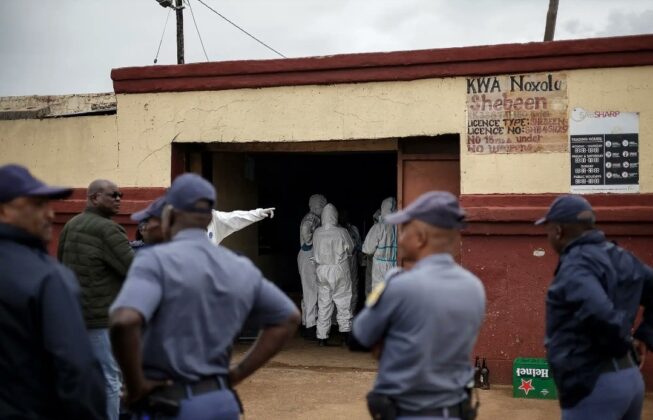
A Syrian doctor has been sentenced to life in prison by a German court after being found guilty of crimes against humanity for torturing detainees at military hospitals during Bashar al-Assad’s rule. Image: Getty Images.
(The Post News)– A Syrian doctor has been handed a life sentence by a German court for crimes against humanity after being found guilty of torturing detainees at military hospitals during the era of former leader Bashar al-Assad.
Mousa faced allegations of torturing patients at military hospitals in Damascus and Homs on 18 separate occasions between 2011 and 2012. In one reported incident, he allegedly set fire to a teenage boy’s genitals, and in another, administered a fatal injection to a detainee who resisted being beaten.
In addition to crimes against humanity, Mousa was also found guilty of murder, torture, and war crimes by the court. Mousa denied the charges throughout the trial, which concluded several months after Assad’s removal from power in December 2024.
In 2015, Mousa arrived in Germany on a visa for highly skilled workers, along with hundreds of thousands of Syrians seeking refuge from the ongoing civil war in their homeland. He continued practising medicine in Germany as an orthopaedic doctor until his arrest in June 2020.
Prosecutors stated that Mousa served at military hospitals in Homs and Damascus, where individuals detained for opposing the government were brought for treatment. However, instead of receiving proper medical care, many were subjected to torture and, in some cases, lost their lives.
In one instance, Mousa was accused of pouring a flammable liquid on a prisoner’s wounds, setting them alight, and kicking the individual in the face with such force that three teeth required replacement.
During the trial, the court heard testimony from both former colleagues and detainees. One witness described the military hospital in Damascus where he was held as being known among prisoners as a “slaughterhouse”.
At the start of the trial in 2022, Mousa told the court that while he had witnessed beatings, he denied ever harming patients himself. He explained that he was too afraid to speak out against the military police who maintained control at the hospital. He stated that he “felt sorry” for the victims but indicated that speaking up would’ve gotten him the same fate as the victims.



